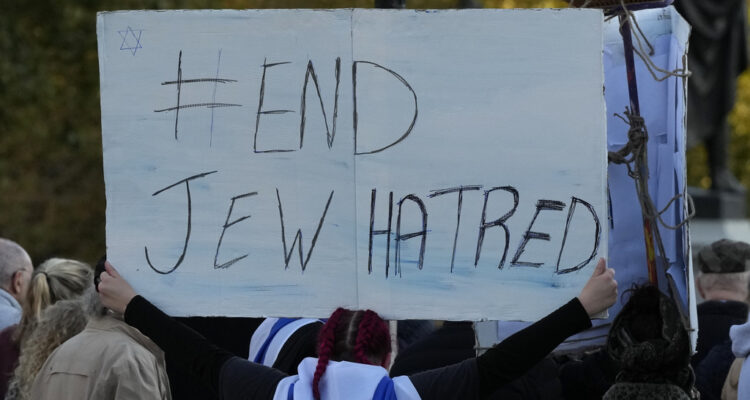Nearly all European Jews say they have experienced antisemitism, according to European Union poll.
By World Israel News Staff
The overwhelming majority of European Jews polled by a European Union government agency say they personally experienced antisemitism in their daily lives.
According to a report published Thursday by the Fundamental Rights Agency of the European Union, a Vienna-based agency formed to replace the European Monitoring Centre on Racism and Xenophobia and to advise the European Union’s leadership, a significant number of European Jews now feel compelled to conceal their Jewish identity amid a rising tide of antisemitism.
A poll included in the report questioned close to 8,000 self-identified Jews living in 13 different European Union-member states including Austria, Belgium, Czechia, Germany, Denmark, Spain, France, Hungary, Italy, the Netherlands, Poland, Romania, and Sweden.
The study includes the results of a survey conducted before the Hamas invasion of Israel on October 7th and the subsequent explosion of antisemitism globally, with more recent data collected by 12 European Jewish organizations.
The local Jewish organizations reported as high as a 400% rise in antisemitism since October 7th, while the survey found that even prior to October 7th, 80% of the respondents said that antisemitism has risen significantly in their home country over the past five years.
More than half (56%) said they had encountered antisemitism in person from people they know in the past year – prior to October 7th.
Over a third of respondents (37%) said they had experienced antisemitic harassment in the past year, with a majority of those saying they had been harassed multiple times.
Nearly all (96%) of those questioned said they experience antisemitism in some form in their daily lives.
More than three-quarters (76%) said they hide their Jewish identity at times, and 34% said they avoid Jewish events or venues because they do not feel safe.





